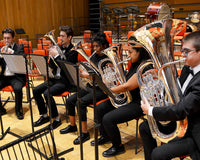In the dynamic world of music education, the state and quality of musical instruments play a pivotal role in nurturing the next generation of musicians. At Normans Musical Instruments, we understand the challenges and questions music educators face regarding their instruments. One of the most frequent dilemmas is deciding whether to repair or replace an instrument. This guide aims to provide clarity and direction, ensuring your decision enhances the educational experience.
Understanding the Lifespan of Musical Instruments
Before diving into the repair or replace debate, it's crucial to understand that different instruments have varying lifespans. Factors influencing an instrument's longevity include build quality, frequency of use and maintenance plans.
Signs It's Time to Repair
Minor Wear and Tear: Instruments showing signs of minor wear, such as superficial scratches or loose components, often only require simple repairs to restore their condition.
Quality and Sentimental Value: High-quality instruments are worth repairing. Instruments with historical or sentimental value also merit restoration.
Cost-Effectiveness: If the repair cost is significantly lower than replacement and doesn’t frequently recur, repairing is a prudent choice.
When Replacement Becomes Necessary
Irreparable Damage: Severe damage, like a cracked body on a string instrument or a significantly bent brass instrument, might be beyond repair or too costly to fix compared to replacement.
Obsolete or Rarely Used Instruments: Technology evolves and so does music education. Instruments that no longer align with your curriculum or are so outdated that parts are scarce should be replaced.
Frequent Repairs: If an instrument requires constant repairs, the cumulative cost and downtime might make replacement a more economical and less disruptive option.
Maximizing the Value of Your Instruments
Routine Maintenance: Regular cleaning, proper storage and periodic servicing can extend the life of an instrument, making the need for repairs less frequent and less costly.
Professional Assessment: When in doubt, consult a professional. Our network of repairers are always ready to assess the condition of your instruments and provide expert advice on the best course of action.
Supporting Sustainability with the ReTune Instrument Recycling Scheme
In our ongoing effort to support music education and environmental sustainability, Normans Musical Instruments proudly offers the ReTune Instrument Recycling Scheme, specifically designed for regional Music Hubs across the UK.
This new initiative invites music hubs to recycle their old, unused musical instruments. Normans will arrange a free-of-charge collection of these instruments, assess their condition and either repair, donate, auction or responsibly dispose of them.
By collecting unused musical instruments, we are not only creating space for new instruments but also facilitating their repair and donation to other organisations, thereby expanding access to quality instruments for more students.
Conclusion
The decision to repair or replace a school musical instrument depends on various factors, including the instrument's condition, cost implications and its role in your music education program. By considering the points outlined in this guide, you can make informed decisions that best serve your students and your music education goals.















